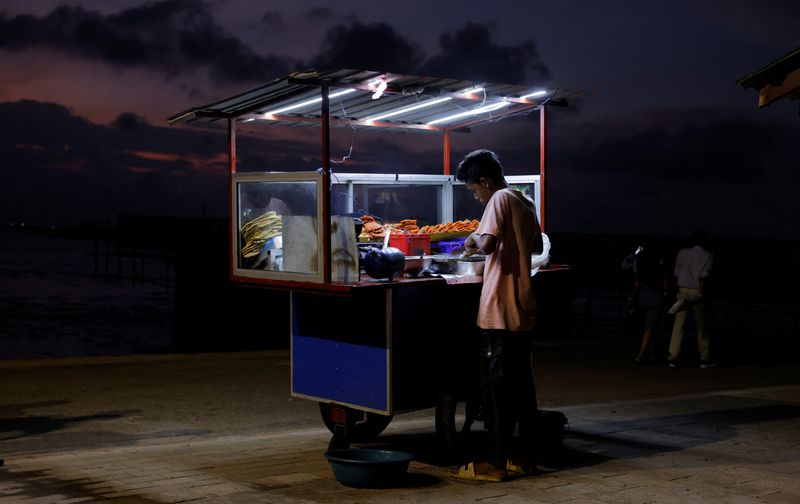By Uditha Jayasinghe
COLOMBO (Reuters) - Sri Lanka's key inflation rate eased to 50.3% in March from 50.6% in February, the statistics department said on Friday. The Colombo Consumer Price Index (CCPI) reflected a reduction in food inflation to 47.6% in March from 54.4% in February, but non-food inflation reached 51.7%, the Census and Statistics Department said in a statement. Sri Lanka has been struggling with soaring prices for over a year, largely caused by its worst financial crisis since it gained independence from Britain in 1948.
The CCPI acts as a lead indicator for broader national prices and shows how inflation is evolving in Colombo, Sri Lanka's biggest city.
Inflation for March was also impacted by a massive 66% power tariff hike in February, analysts said, with inflation likely to moderate faster over the next three months.
"We are likely to see inflation dropping to about 16% in the second quarter because of the high base effect," said Dimantha Mathew, head of research for First Capital.
"But single digit inflation will only be seen towards the end of the year."

The island's central bank is widely expected to hold policy rates next Tuesday after a surprise 100 bps hike earlier this month as part of efforts to finalise a $3 billion bailout from the International Monetary Fund.
Sri Lanka’s national consumer price inflation, which is released with a lag of 21 days every month, increased slightly to 53.6% in February from 53.2% January after the country changed the base year from 2013 to 2021 last month.